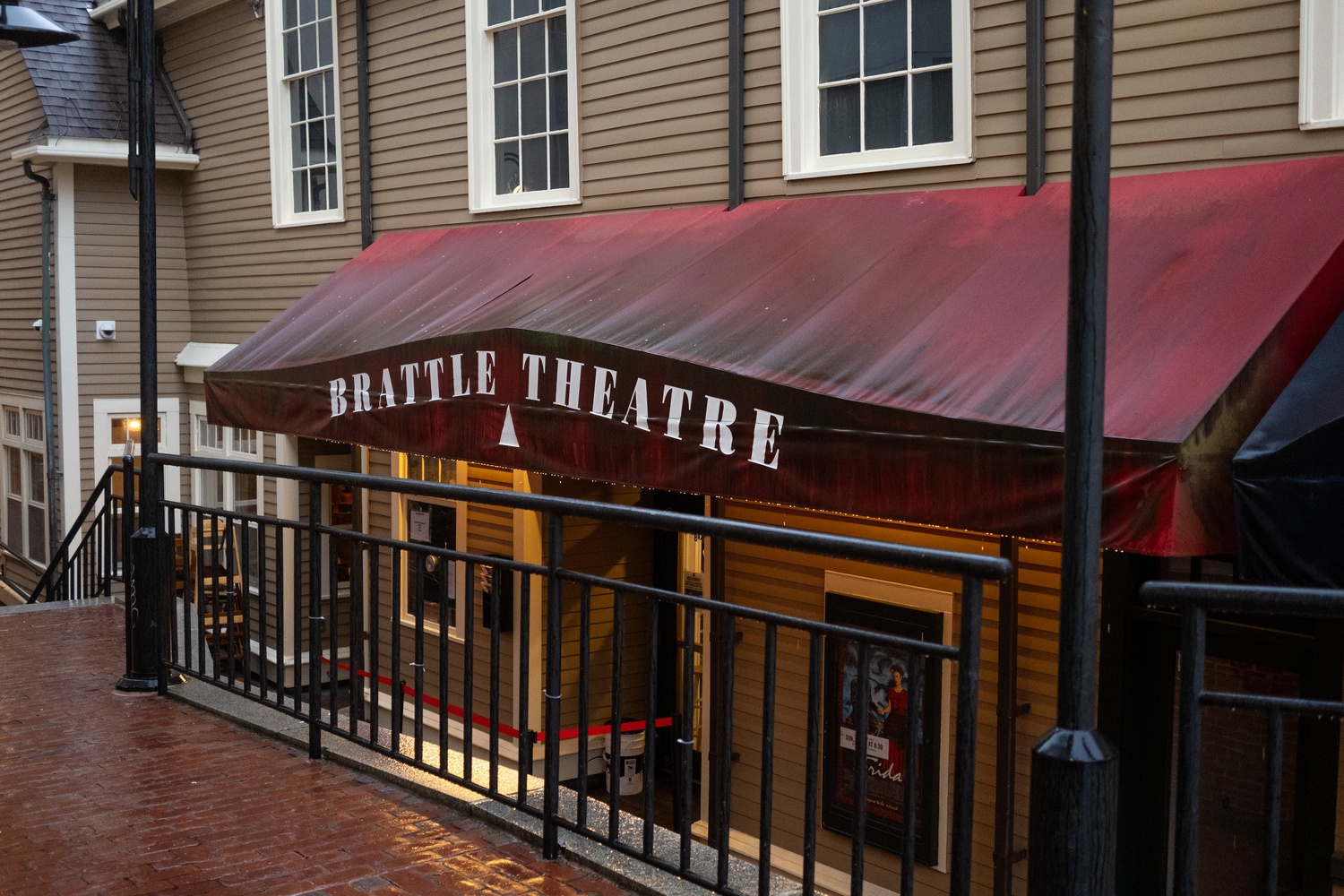
News
Summers Will Not Finish Semester of Teaching as Harvard Investigates Epstein Ties

News
Harvard College Students Report Favoring Divestment from Israel in HUA Survey

News
‘He Should Resign’: Harvard Undergrads Take Hard Line Against Summers Over Epstein Scandal

News
Harvard To Launch New Investigation Into Epstein’s Ties to Summers, Other University Affiliates

News
Harvard Students To Vote on Divestment From Israel in Inaugural HUA Election Survey
In Tribute to David Lynch: The Brattle Commemorates the Late Filmmaker

From Feb. 24 to Feb. 27, cinephiles gathered at The Brattle Theatre to celebrate the visionary work of David Lynch with special screenings of “Blue Velvet” (1986) and “Mulholland Drive” (2001). The event, part of an ongoing tribute to the late filmmaker who passed earlier this year, provided audiences with an opportunity to reflect on Lynch’s eccentrism, surreal imagery, and profound influence on the world of cinema.
The Brattle saw sold-out screenings of “Mulholland Drive,” drawing in a mix of longtime Lynch fans and newcomers alike. The film remains one of Lynch’s most iconic films. Originally conceived as a television pilot before being reworked into a feature film, the movie blends surrealism, psychological horror, and romance into an intoxicating fever dream of Los Angeles. The film tells the story of Betty (Naomi Watts), an aspiring actress new to Hollywood, who crosses paths with Rita (Laura Harring), a woman suffering from amnesia after a car crash. “Mulholland Drive” follows the two women as they attempt to solve the mystery of Rita’s identity.
Rachel J. Kamphaus, one of the many attendees, shared her excitement about finally getting to see “Mulholland Drive” on the big screen.
“I wanted to see it in person for the first time and have that special experience, so that’s why I’m here. I came here two or three weeks ago to see ‘Fire Walk With Me,’ which was the first time they screened after Lynch’s death, and it was a really moving experience,” Kamphaus said.
For many, Lynch’s films are best appreciated in a theatrical setting, where their dreamlike qualities become all the more immersive. The Brattle’s tribute offered a rare opportunity to fully lose oneself in Lynch’s intricate sound design and evocative cinematography.
For Dylan M. Bean, another audience member, “Mulholland Drive” was a key entry point into Lynch’s filmography for him during the early days of the pandemic.
“I saw ‘Blue Velvet’ first, and then I saw ‘Mulholland Drive,’ and it kind of blew my mind,” Bean said. “I feel like I keep coming back to David Lynch a lot — what he did and what he left behind — because he helped make what is inexpressible in words. He did that very well — the kind of surreal, dreamscape thing that he does.”
Indeed, Lynch’s work is resistant to categorization — so much so that it has spawned its own descriptor, “Lynchian.” His art often explores the blurred boundaries between reality and fantasy, identity and illusion. Born in 1946, he emerged as a defining voice in avant-garde filmmaking. His early work, such as his first feature film “Eraserhead” (1977), set the tone for his signature style — marked by unsettling visuals, disjointed narratives, and industrial soundscapes. The filmmaker reached mainstream success with “The Elephant Man” (1980), which earned him an Academy Award nomination for Best Director.
Throughout his career, Lynch continued to push cinematic boundaries with films like “Wild at Heart” (1990), “Lost Highway” (1997), and “Inland Empire” (2006), as well as his television series “Twin Peaks” (1990-1991, 2017) which successfully earned the status of a cult phenomenon.
The screening also marked a first encounter with Lynch’s world for some. Michael L. Forry, attending at the recommendation of many people in his life, was at the Brattle to watch “Mulholland Drive” for the first time.
“I think it’s super cool to introduce people to David Lynch after his passing,” Forry said.
This continued enthusiasm for Lynch’s films, especially among younger audiences, underscores their enduring relevance.
The Brattle also screened “Blue Velvet.” The film, which follows a college student’s descent into the dark underbelly of his suburban hometown after discovering a severed human ear in a field, has been cited as one of the greatest films of all time. Like “Mulholland Drive,” it dissects the duality of American life, exposing the eerie and often violent forces lurking beneath polished surfaces.
The tribute at the Brattle is only the beginning. As noted on the theater’s website, a more extensive Lynch retrospective is planned for later in 2025, with additional screenings and events to celebrate his vast and influential body of work. His contributions extend beyond movies, as he was also a prolific painter, photographer, musician, and writer, always exploring new ways to express his singular vision. Until then, these screenings served as a collective moment to appreciate a filmmaker who refined the boundaries of cinema, leaving behind a mystery of intrigue and awe.
—Staff writer Lydia H. Fraser can be reached at lydia.fraser@thecrimson.com.
Want to keep up with breaking news? Subscribe to our email newsletter.
